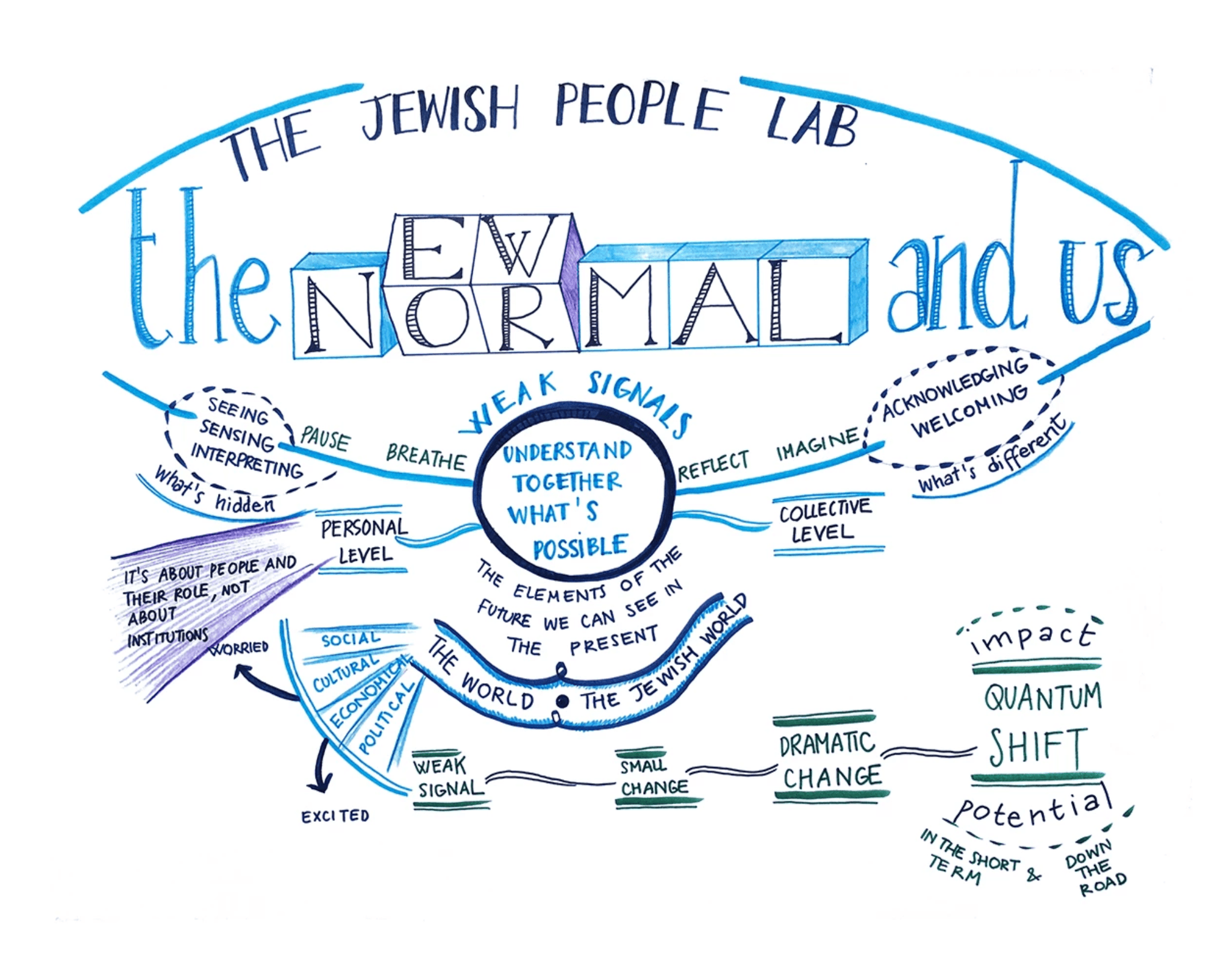
05 Aug 2020 Jewish People Lab Asks Questions, Explores New Normal
- Copy Link
2020 Jewish People Lab Asks Questions, Explores New Normal
Over 140 leaders around the world participated in The Jewish Agency’s Jewish People Lab online
In July, as the coronavirus continued to plague nations around the world, the Jewish People Lab offered three virtual workshops. The first allowed participants — from 19 countries and five continents — to see and sense where we have been and where we are now. The session operated as a starting point to a collective dialogue on how to respond to the adaptive pressures that we as the Jewish people are likely to face.
Leaders and senior officials discussed the reality of Jews around the world and enjoyed glimpses of hope that communities have witnessed in the midst of COVID-19.
“We need to focus on what are these exciting innovations we’ve made, how are they affecting Jewish identity and which of them can we hang onto and how when we come out the other end of this,” stated Susan Jackson of the UJA Federation of Greater Toronto in the workshop.
In the second workshop, the questions asked included “what will the New Normal look like?” and “How can we survive and stay relevant to ourselves, to our communities, to our people?” Participants talked about new ways of living and working, being a part of a community, connecting and collaborating, leading and showing up.
“We are in a leadership position and people are expecting us to kind of keep the energy up and keep going and plan for the future even if it’s not certain,” said Anastassia Pletoukhina, IPC (The Jewish Agency Center in Berlin).
They reflected on the challenges that organizations and institutions are facing, both in the short term (how to survive) and in the long term (how to seek relevance in a whole new context).
“It’s about making, whether it’s the Jewish community or society in the larger world, a better place. So who do we want to be at the end of this process? And I just think that one of the challenges is for us to be approaching all of this from a position of radical empathy,” shared Shoshana Bloom, an alumnus of Masa Israel and the current Global Chair of Limmud.
Many resonated with the thought that radical empathy is key. Some shared the struggle and the need of making a deliberate effort in pushing their people to develop new capacities, to stand up in new ways.
“We have to look at different ways of empowering our people,” said Ginette Searle of the Zionist Federation of Australia.
The third and final workshop explored the new capacity and new leadership that may be needed going forward. Participants shared their thoughts on how the concepts of “leadership,” “authority” and “power” have evolved, sharing their experiments, failures, and successes with the group.
“I think that this crisis has revealed, time and time again, the dangers of false hope. We both have to create hope and we have to avoid giving false hope. And how we do that I think is one of the greatest challenges each of us individually faces and we collectively face,” shared Robin Moss, Director of Strategy at United Jewish Israel Appeal in London.
The Jewish People Lab ended with words of hope rooted in the conviction that if we all act and do something to help the world tip in the right direction, it just might.
To explore the visual summaries booklet created during the workshops, click here.
